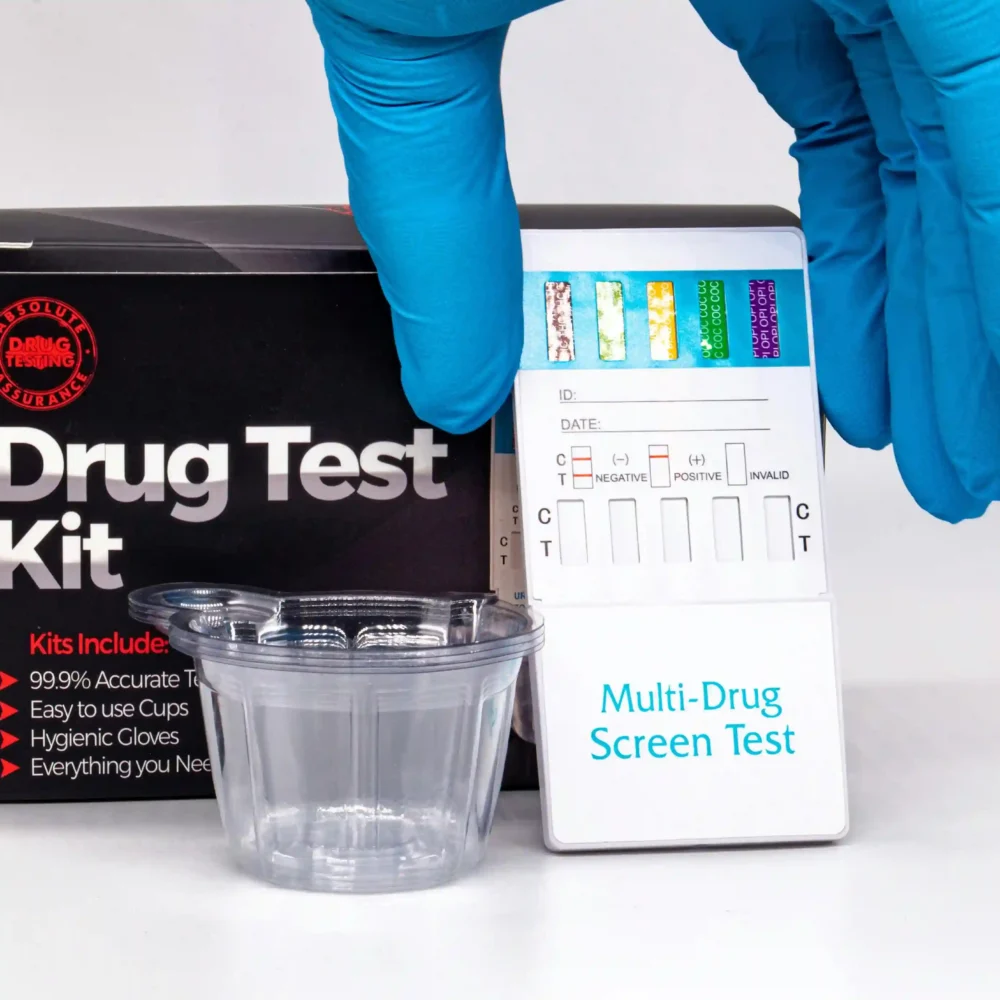
Last Updated on September 12, 2025 by Beth Skwarecki
Employers across Georgia often ask whether they can legally require random drug testing in the workplace. At the same time, employees may wonder if being asked to take a test without warning violates their rights. Understanding Georgia’s approach to workplace drug testing is important for both sides, especially in industries where safety and productivity are closely tied to sobriety.
The short answer is yes, employers in Georgia can legally conduct random drug tests, but there are specific rules and limitations. Georgia has a voluntary drug-free workplace program that allows employers to set up testing policies, but those policies must follow clear guidelines.
Let’s explore the legal framework, best practices, and the broader implications for workplace safety and employee well-being, as well as help you better understand how random drug testing is applied in Georgia.
Georgia’s Drug-Free Workplace Program
Georgia does not require all employers to conduct drug testing. However, the state has created an incentive-based program called the Georgia Drug-Free Workplace Program. Employers who adopt a certified drug-free workplace policy can receive a discount on their workers’ compensation insurance premiums.
To qualify, companies must follow specific steps, such as implementing a written policy, conducting employee education, providing supervisor training, and allowing for both pre-employment and random testing.
This program effectively encourages businesses to establish structured drug testing practices while giving employees notice of the policy. Participation is voluntary, but once an employer enrolls, compliance with the program’s standards is required to maintain certification.
Is Random Drug Testing Legal in Georgia?
Yes, random drug testing is legal in Georgia, provided it is carried out under a compliant workplace policy. Employers who participate in the state’s drug-free program typically include random testing as part of their policy. Even employers who do not formally participate in the program may still implement random testing, but they must ensure their practices are consistent, non-discriminatory, and clearly outlined in company policy.
The key factor is that employees should know in advance that random testing is part of their workplace rules. Most organizations cover this in their employee handbook or during orientation. Without a written policy, random testing can create confusion and legal risk, especially if employees believe they are being singled out unfairly.
Federal Regulations and Industry Standards
Beyond state law, some industries fall under federal regulations that require drug testing. For example, transportation workers regulated by the Department of Transportation (DOT) are subject to strict testing protocols, including random drug and alcohol tests. Aviation, trucking, and certain government contract positions often involve federally mandated testing. In these cases, Georgia law aligns with federal rules, and employers have even stronger authority to conduct random testing.
Other industries with high safety risks, such as construction or manufacturing, may also adopt random testing policies to reduce accidents and promote accountability, even if federal law does not require it.
Employee Rights and Privacy Concerns
While Georgia allows random testing, employees still retain certain rights. Drug tests must be administered in a professional and respectful manner. Employers cannot discriminate against specific individuals by only testing certain employees unless there is a documented reason, such as suspicion of on-the-job impairment.
Additionally, test results must be handled confidentially. Employers must secure testing records and share results only with authorized personnel. If an employee tests positive, the employer typically has discretion in deciding whether to discipline, terminate, or offer assistance. Some organizations integrate supportive measures, such as referring employees to a local rehab, to balance accountability with compassion.
Consequences of Refusing a Random Drug Test
A common question employees ask is, “What happens if I refuse a drug test at work?” In Georgia, the consequences depend on the employer’s policy. Many workplaces treat refusal as equivalent to a positive test, which could result in disciplinary action or termination. This is particularly true in safety-sensitive industries, where refusal may be seen as a threat to workplace safety.
For employers, it is essential to clearly outline the consequences of refusal in the written policy so employees understand the stakes. Transparent communication prevents misunderstandings and protects against legal disputes.
Balancing Workplace Safety and Employee Support
Drug testing is often seen as a tool for compliance and liability protection, but it also plays a role in workplace culture and employee health. Employers that approach testing as part of a broader commitment to safety and well-being tend to create healthier work environments.
Random testing can deter substance use on the job, but employers should also consider supportive measures when employees struggle with addiction. Offering access to employee assistance programs (EAPs), treatment referrals, and education can help employees recover while preserving workplace safety. This balance fosters trust and reduces the stigma often associated with substance use disorders.
Best Practices for Employers in Georgia
Employers who want to implement random drug testing should follow a few key best practices. First, develop a clear, written policy that complies with Georgia’s voluntary drug-free workplace program.
Second, communicate the policy openly during hiring and training so employees understand expectations.
Third, apply testing consistently and fairly, ensuring that the random selection process truly is random. Fourth, safeguard confidentiality by keeping results private and secure.
Finally, consider integrating supportive resources so employees view testing as part of a larger culture of care, not simply as a disciplinary tool.
Common Misconceptions About Random Drug Testing
Several misconceptions surround random workplace testing in Georgia. Some employees believe it is illegal altogether, which is not true. Others assume that employers must provide advance notice for every test, but in reality, prior notice undermines the purpose of random testing.
Another misconception is that testing is limited to certain industries. While federal rules apply to transportation and similar fields, private employers in many industries may also adopt policies that include random testing.
Understanding these realities can reduce resistance and anxiety among employees while helping employers maintain legal compliance.
The Broader Impact on Workplace Culture
When handled correctly, random drug testing can contribute to a safer, more productive workplace. However, if implemented without care, it can damage morale and create mistrust. The difference lies in how policies are communicated and enforced.
Employers who emphasize fairness, respect, and confidentiality are more likely to build trust with their teams. By framing testing as part of a broader strategy for safety and wellness, organizations can reduce tension and maintain positive employee relations.
Drug Testing at The Workplace in Georgia
Is it legal to drug test employees at random in Georgia? The answer is yes, as long as employers follow the state’s guidelines, maintain a clear written policy, and apply testing fairly. Participation in Georgia’s Drug-Free Workplace Program provides additional structure and financial incentives, but even outside of the program, employers have significant discretion to test at random.
For employees, understanding their rights and responsibilities is equally important. Random drug testing is legal, but it must be carried out respectfully and with proper safeguards. Employers who balance compliance with compassion, offering resources such as treatment referrals when necessary, often see the most positive outcomes.
By viewing random drug testing not just as a legal obligation but as part of a larger commitment to safety, health, and accountability, Georgia employers can create workplaces that are both compliant and supportive.

Lizethe writes about the vital intersection of healthcare and law, breaking down complex legal topics into clear, practical insights. From patient rights to medical regulations, Lizethe helps readers understand the legal side of health, empowering them with knowledge to protect and advocate for themselves.